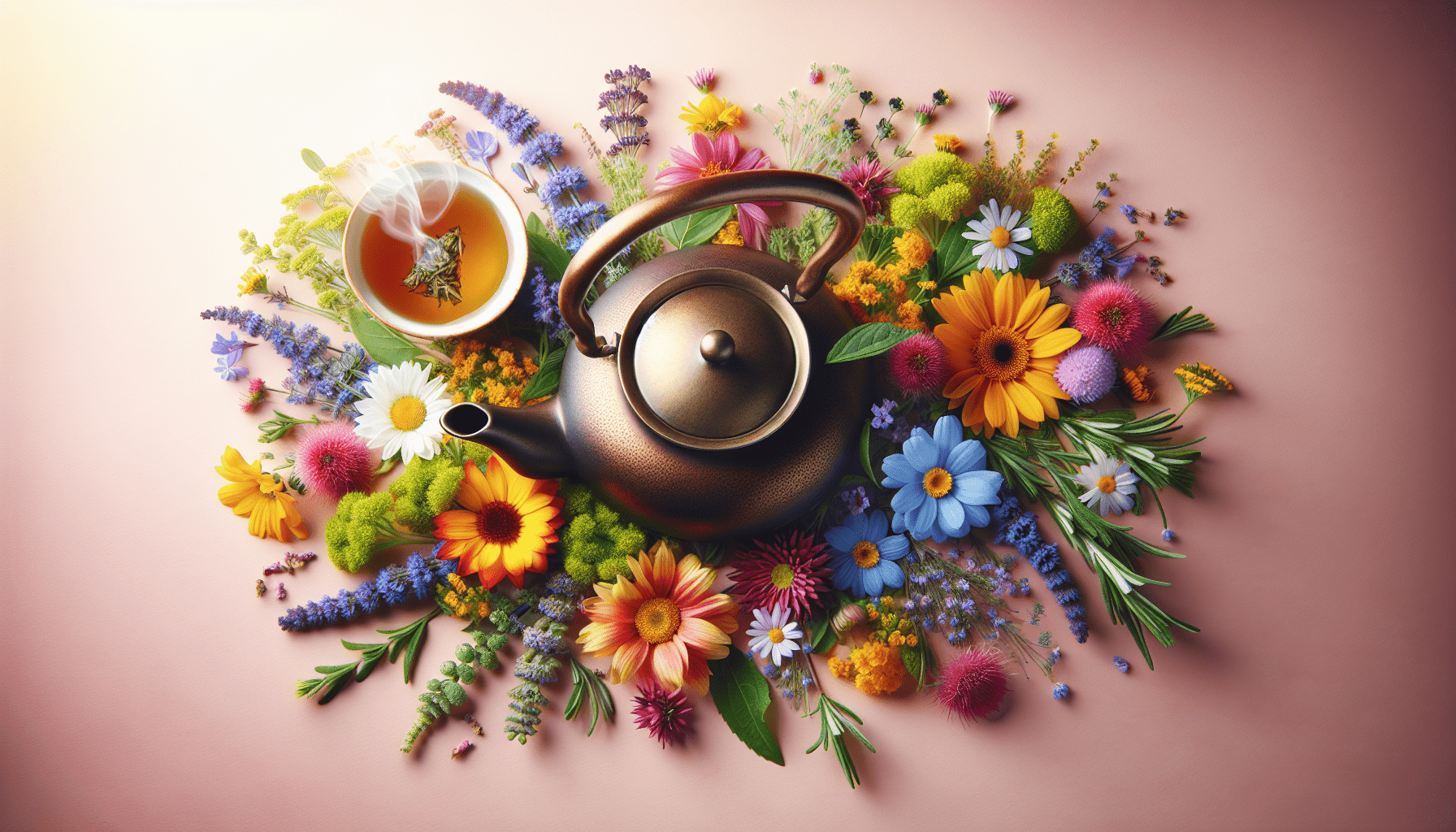Are allergies making your life miserable? Sneezing, itchy eyes, and a constant stuffy nose can put a damper on your day. But worry not, because there are natural solutions to combat allergies without relying on medications. From herbal remedies to changes in your lifestyle, this article explores effective and safe ways to alleviate allergy symptoms and enjoy life to the fullest. So say goodbye to the constant discomfort and hello to a more allergy-free existence.

1. Identifying Allergens
Allergies can cause significant discomfort and disrupt your daily life, but the first step in managing them effectively is to identify the specific allergens that trigger your symptoms. By knowing what substances or factors provoke an allergic reaction in your body, you can take proactive measures to minimize exposure and find suitable remedies.
1.1. Common Allergens
There are several common allergens that affect a large number of people. These include pollen, dust mites, pet dander, mold spores, and certain foods. Pollen allergies, also known as hay fever or seasonal allergies, are often triggered by trees, grasses, and weeds. Dust mites, small organisms that thrive in warm and humid environments, can cause allergic reactions when their waste particles become airborne. Pet dander, the tiny skin flakes and saliva of animals, is another common allergen, especially for those with pet allergies. Mold spores, which are prevalent in damp areas, can also trigger allergic reactions. Additionally, certain foods like peanuts, shellfish, and dairy products are known to cause allergic responses in some individuals.
1.2. Personal Allergens
Apart from common allergens, it is important to identify any personal allergens that may affect you specifically. Pay attention to your body’s reactions to certain foods, medications, skincare products, or other substances. Keep a diary to record any symptoms or discomfort you experience, and try to identify the potential triggers. This will help you pinpoint the specific allergens that affect you personally, enabling you to make informed decisions about avoidance and treatment strategies.
1.3. Allergy Testing
Allergy testing can be a valuable tool in determining the specific allergens that cause your discomfort. There are various methods of allergy testing, including skin prick tests, blood tests, and patch tests. A skin prick test involves exposing your skin to small amounts of suspected allergens and monitoring for a reaction. Blood tests measure the levels of specific antibodies in your blood, indicating the presence of allergies. Patch tests are used to identify allergies to substances that may come into contact with your skin, such as metals or certain chemicals. Consult with an allergist or immunologist to discuss the most suitable testing method for your situation and to accurately identify your allergens.
2. Natural Remedies for Allergies
While there are conventional medications available to alleviate allergy symptoms, many people prefer to explore natural remedies as a first line of defense. Here are some natural solutions that have shown promise in managing allergies:
2.1. Honey
Honey has been used as a natural remedy for allergies for centuries. It is believed that consuming locally sourced honey helps build immunity against local allergens, such as pollen. Although scientific evidence is limited, many people swear by the benefits of incorporating honey into their daily diet. However, it is important to note that honey should not be given to children under the age of one.
2.2. Probiotics
Probiotics are beneficial bacteria that promote a healthy gut microbiome. Studies suggest that probiotic supplements or foods rich in probiotics may help alleviate allergy symptoms. These friendly bacteria can help regulate the immune system and reduce overall inflammation. Probiotics can be found in fermented foods like yogurt, kefir, sauerkraut, and kimchi. If considering probiotic supplements, consult with a healthcare professional for the appropriate strain and dosage.
2.3. Quercetin
Quercetin is a flavonoid found in certain fruits, vegetables, and herbs, known for its anti-inflammatory properties. It is believed to inhibit the release of histamine, a chemical involved in allergic reactions. Quercetin-rich foods include apples, onions, berries, citrus fruits, leafy greens, and green tea. While dietary sources may not provide enough quercetin to effectively manage allergies, supplements are available. However, it is advisable to consult with a healthcare professional before adding any supplements to your routine.
2.4. Stinging Nettle
Stinging nettle is an herb often used in traditional medicine to relieve allergy symptoms. It contains compounds that may reduce inflammation and inhibit the release of histamine. Stinging nettle can be consumed as a tea, taken in capsule form, or applied topically in creams or ointments. It is important to note that stinging nettle can cause skin irritation, so caution should be exercised when handling the plant.
2.5. Butterbur
Butterbur is a plant native to Europe and Asia that has been traditionally used to treat allergies. It contains compounds that are thought to block the chemicals responsible for triggering allergic reactions. Butterbur supplements, derived from the root or rhizome of the plant, are available and have shown promising results in relieving allergy symptoms. However, it is important to choose a reputable brand that has removed harmful pyrrolizidine alkaloids, which can be toxic to the liver.
3. Preventative Measures
Prevention is key when it comes to managing allergies. Taking proactive steps to reduce exposure to allergens can help minimize symptoms and improve overall well-being. Here are some preventive measures you can incorporate into your daily routine:
3.1. Keep the Home Clean
Regularly clean and dust your home to remove potential allergens, such as dust mites, pet dander, and mold spores. Use a vacuum cleaner with a HEPA filter to effectively trap allergens, and wash bedding in hot water to eliminate dust mites.
3.2. Minimize Outdoor Exposure
Limit your time outdoors, especially during peak pollen seasons, such as spring and fall. Check pollen forecasts and try to stay indoors when pollen counts are high. If you do need to go outside, consider wearing a pollen mask to filter out allergens.
3.3. Use Allergy-Proof Bedding
Invest in hypoallergenic bedding, including mattress covers, pillowcases, and duvet covers, to create a barrier against dust mites. Opt for materials that are resistant to allergens and can be easily washed to maintain cleanliness.
3.4. Maintain Good Indoor Air Quality
Improve indoor air quality by using air purifiers or installing a high-efficiency HVAC filter. These devices can help remove allergens from the air, making your home a more allergy-friendly environment.
3.5. Wear Protective Gear
When performing outdoor activities that may expose you to allergens, such as gardening or cleaning, consider wearing protective gear. This may include gloves, masks, and goggles to reduce direct contact with allergens.
4. Lifestyle Changes
In addition to natural remedies and preventive measures, making certain lifestyle changes can have a positive impact on managing allergies. Consider incorporating the following practices into your daily routine:
4.1. Dietary Changes
Some individuals find relief from allergies by making dietary changes. Avoiding known food allergens, such as peanuts or shellfish, may help alleviate symptoms. Additionally, incorporating anti-inflammatory foods like fatty fish, leafy greens, and berries into your diet can have a positive impact on overall immune health.
4.2. Natural Cleaning Products
Switching to natural cleaning products can reduce exposure to harsh chemicals and potential allergens. Look for eco-friendly alternatives that are free of synthetic fragrances and dyes. Simple ingredients like vinegar and baking soda can be used as effective cleaning solutions.
4.3. Stress Management
Stress can exacerbate allergy symptoms, so practicing stress management techniques can be beneficial. Engage in activities that help you relax, such as yoga, meditation, or spending time in nature. Prioritize self-care to reduce stress levels and promote overall well-being.
4.4. Regular Exercise
Regular exercise can strengthen the immune system and reduce the severity of allergy symptoms. Engaging in moderate exercise, such as walking, swimming, or cycling, can help improve respiratory function and alleviate congestion.
4.5. Nasal Irrigation
Nasal irrigation is a technique that involves flushing out the nasal passages with a saltwater solution. This can help remove allergens, irritants, and excess mucus, providing temporary relief from nasal congestion and sinus pressure. Neti pots or saline nasal sprays can be used for this purpose.

5. Herbal Teas
Herbal teas have been used for centuries to alleviate various health conditions, including allergies. While they may not provide a complete cure, they can offer relief from symptoms and support overall well-being. Here are some herbal teas that are commonly used:
5.1. Chamomile Tea
Chamomile tea is known for its soothing properties and can help reduce inflammation. It may provide relief from hay fever symptoms and promote better sleep, as allergies can sometimes disrupt sleep patterns. Brew a cup of chamomile tea and enjoy its calming effects.
5.2. Peppermint Tea
Peppermint tea contains menthol, which can help relieve nasal congestion and soothe itchy eyes. It has a cooling effect and may provide temporary relief from allergy symptoms. Sip on a hot cup of peppermint tea or enjoy it chilled for maximum refreshment.
5.3. Green Tea
Green tea is rich in antioxidants and has anti-inflammatory properties. It may help reduce allergic responses and support the immune system. Drink a cup of green tea daily to reap its potential benefits for allergies and overall health.
5.4. Nettle Tea
Nettle tea, made from the leaves of the stinging nettle plant, has traditionally been used to treat allergies. It may help relieve symptoms such as sneezing, itching, and congestion. However, exercise caution when handling the plant as it can cause skin irritation.
5.5. Ginger Tea
Ginger tea has natural antihistamine properties and may help alleviate allergy symptoms. It has been used in traditional medicine to reduce inflammation and support respiratory health. Brew a cup of ginger tea by steeping fresh ginger slices in hot water for a few minutes.
In conclusion, managing allergies with natural solutions involves a holistic approach that includes identifying allergens, exploring natural remedies, adopting preventive measures, making lifestyle changes, and incorporating herbal teas. By taking proactive steps and seeking natural alternatives, you can effectively combat allergies and enhance your quality of life. Remember to consult with healthcare professionals or allergists for personalized advice and guidance on managing your specific allergies.

